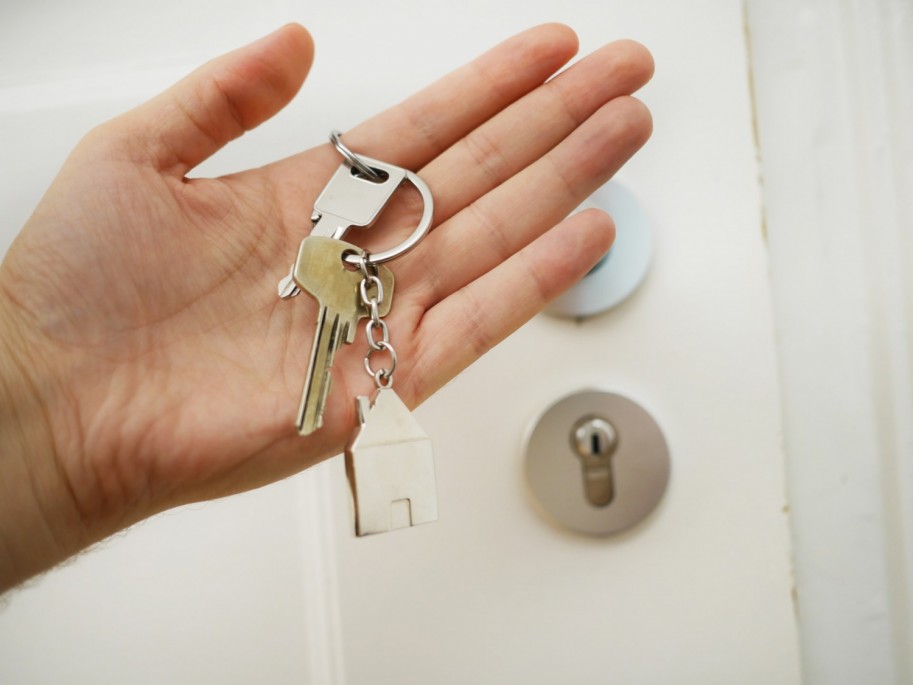
Finding the home of your dreams is exciting, but having your offer rejected can be devastating. And if you have multiple offers rejected, you might feel like giving up.
If you're looking to buy in a hot real estate market, you're going to need to read these tips so that you know the best ways to get the house of your dreams. Then, once you succeed and your offer is accepted, you'll need to prepare to own your home by learning about home insurance types and securing the right policy for your situation.
Preparing to Navigating Real Estate Booms
If you want to step into the housing market and find a home, you first need to get prequalified and then preapproved.
Prequalified Versus Preapproved
These terms aren't mutually exclusive, but rather, one is the first step for the next. It's easy to get these terms mixed up, but it's critical to know the difference. A prequalification is an educated guess, while a preapproval is verified. It's still not guaranteed, but it's closer to confirmation than a prequalification.
When you talk to a lender, they'll ask questions about your finances and give you a prequalified loan amount based on that information.
The next step is to provide data for all that information. With that, the lender can confirm your income, debt, and several other factors and give you a preapproval.
When you're shopping in a competitive market, houses move fast, and you'll need your preapproval letter to prove legitimacy when you put an offer on a house.
Review Your Budget
You may be able to afford a mortgage in the amount you're preapproved for, but don't assume that you can. Instead, sit down and work out your budget to see how much you can realistically put toward housing. If it's less than you're preapproved for, keep your house search within your budget rather than the amount the bank will lend you.
Find a Realtor
A good Realtor can keep you informed the moment a prospective house hits the market, and sometimes even before. They'll know the market and what the trends are, and what you'll need to do to maximize the chance that you'll give the winning offer.
Ask your friends for advice and research ratings for different Realtors in your area as a way to get started. Then, talk to a few different real estate professionals to see who you get along with best.
Winning in a Red-Hot Real Estate Market
Don't miss out on the property you want because someone put in an offer that was just a little bit better than yours.
Offer Over Asking
Your real estate agent can guide you on this subject. Unfortunately, there's no magic number like $10,000 or $20,000 over the asking price because markets vary greatly. Your Realtor will be able to give you a better ballpark figure of how much over asking you should offer to be considered.
Keep in mind that you'll likely have to offer over the asking price to get a home in a hot market, so make sure you're only considering homes that are listed below your budget so you'll have the ability to offer more than the listed price.
Waive Contingencies
Any time you waive contingencies, you take on more risk. So, whether or not you should waive an appraisal or inspection contingency should be considered carefully.
There are some ways to minimize your risk. First, if you decide to waive the appraisal contingency, make sure you have enough money to pay for the difference between the appraised value, on which your lender will base their loan amount, and the purchase price. If you have enough wiggle room, the appraised value won't matter.
To lower your risk with an inspection waiver, keep in mind that houses 50 years old or older may need updated wiring, a new roof, or one of many other potentially expensive fixes. If you don't waive an inspection, you should consider waiving minor repairs up to $1,000 each.
For example, if you waive minor repairs and an inspection reveals a cracked window, you won't back out of the contract. However, if the foundation is bad, you can break the contract. So, when you view a home, look for signs of foundation issues and other significant problems.
If you don't waive the inspection, you should make a higher offer to compensate for the uncertainty a home inspection puts on the sellers. Sellers tend to want a sure thing, and the fewer contingencies, the more desirable an offer is. But for the right price, many sellers will surrender certainty.
Offer Non-Refundable Earnest Money
The more non-refundable earnest money you put down, the more dependable your offer will be to the seller. Plus, even if you back out, the seller can start over with some extra cash, which is also desirable.
All of the tips listed above benefit the seller and not the buyer, but that's how it works in a red hot market, so that's how you have to play if you want to win.
Finding the Right Home Insurance
Once your offer is accepted, you'll have to secure home insurance before the bank closes on your loan. And you'll probably be thankful to hear that you don't have to give everything up to get a good home insurance policy.
Compare Quotes
The first step you'll need to take to find the best home insurance company is to compare quotes. You may want to compare quotes online to get started, and then you'll need to work with a few of the top resulting companies directly to get an accurate quote.
Compare premiums with at least two different deductible price points so you can see how much a deductible will change your premium. Remember, your home insurance premiums will likely be put into escrow, so you'll pay for them with your mortgage payment. So, paying lower premiums will help you pay a lower home payment each month.
Consider Your Auto Insurer
Since most insurance companies offer a bundling discount when you buy home and auto insurance from them, you should compare your current auto insurance provider's home insurance quotes.
You might even want to think about switching your auto insurance provider to whoever you go with for home insurance. Of course, it doesn't always work out best to bundle, but it often does. Be sure to also compare your car insurance rates by make and model to make sure that you aren't forgoing a better deal outside a bundle.
While there's undoubtedly stress involved in finding a house and making an offer good enough to go under contract, being prepared is the best way to handle that stress confidently. Then, once you've signed a purchase agreement, you can start shopping for ways to save on home insurance to protect the home of your dreams.

Melanie Musson writes and researches for the insurance comparison site, ExpertInsuranceReviews.com. She's passionate about helping others understand their insurance needs and how the right policy can protect their financial stability both now and in the future.
* This is a contributed article and this content does not necessarily represent the views of realtytoday.com













